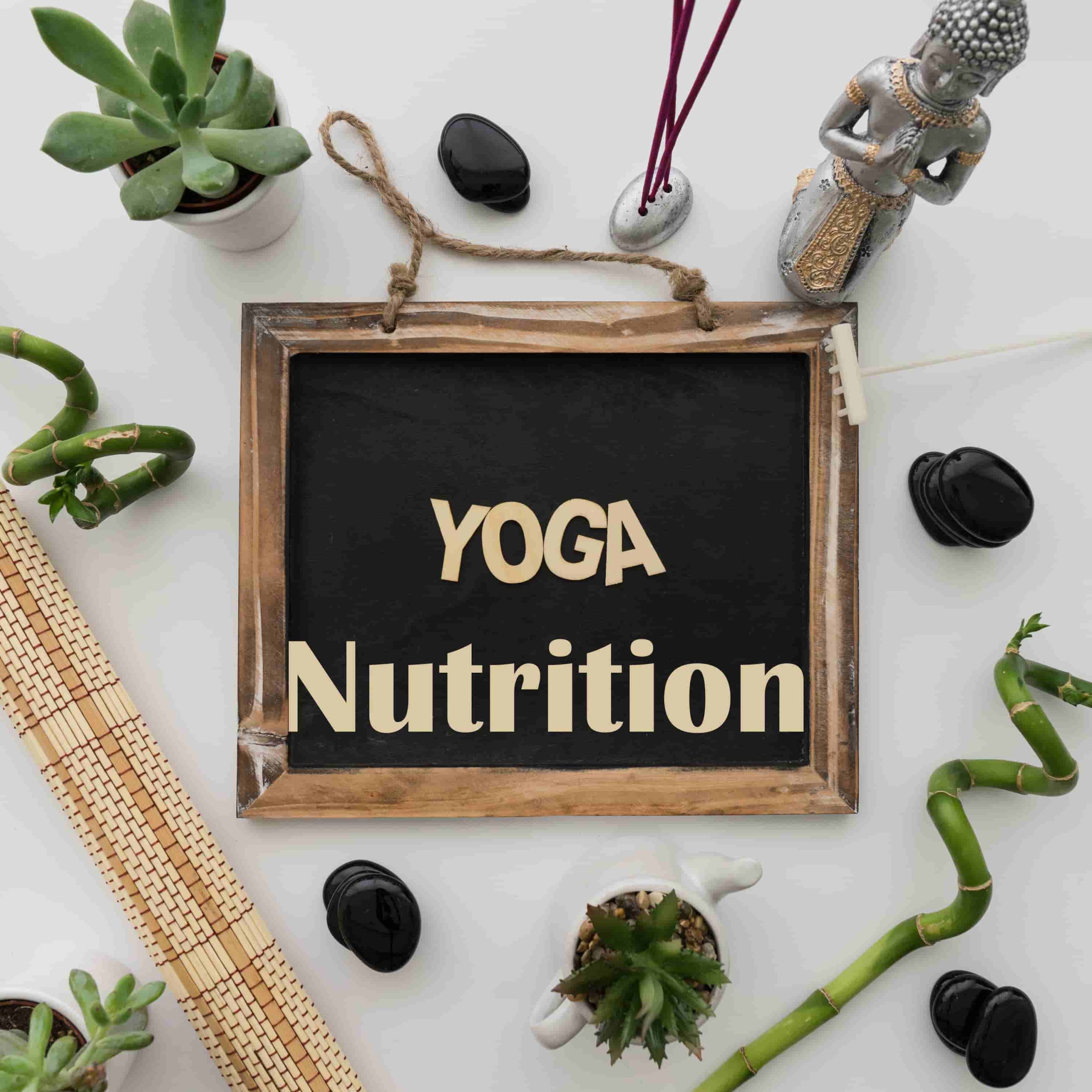Yoga Nutrition Guide

Hello and welcome to my blog post on the Yoga Nutrition Guide! I’m so excited to share with you some amazing tips and insights on how you can fuel your body with the right nutrients for your yoga practice.
Yoga is not just a physical practice, but also a mental and spiritual one. It’s about finding balance and harmony in all aspects of your life, including your diet. The food you eat can greatly impact your yoga practice, and that’s why it’s important to be mindful of what you consume.
In this blog, I’ll be discussing the importance of proper nutrition for yoga, the types of food that are best for your practice, and some simple yet delicious recipes that you can try at home. So, if you’re ready to take your yoga practice to the next level and nourish your body from the inside out, be sure to read until the end of my blog!
| Nutrient | Importance in Yoga Nutrition | Sources | Recommended Daily Intake |
|---|---|---|---|
| Protein | Essential for muscle repair and growth | Legumes, nuts, seeds, tofu, tempeh, quinoa, dairy, eggs, meat, fish | 0.8-1.2 grams per kilogram of body weight |
| Carbohydrates | Main source of energy | Whole grains, fruits, vegetables, legumes | 45-65% of daily calorie intake |
| Healthy Fats | Support brain function and hormone production | Nuts, seeds, avocado, olive oil, coconut oil, fatty fish | 20-35% of daily calorie intake |
| Fiber | Promotes digestive health and regulates blood sugar | Whole grains, fruits, vegetables, legumes | 25-30 grams per day |
| Vitamins and Minerals | Support overall health and immunity | Fruits, vegetables, nuts, seeds, whole grains | Follow recommended daily intake for specific nutrient |
1. Why Nutrition is Important for Yoga Practitioners
Yoga is a physically demanding practice that requires strength, flexibility, and endurance. To perform at your best, you need to provide your body with the fuel it needs. Good nutrition is essential for maintaining energy levels, improving recovery time, and preventing injury.
In addition to physical benefits, good nutrition can also enhance your mental focus and clarity during your yoga practice. By eating a balanced diet, you can support your brain function, reduce stress, and improve your overall well-being.
2. Essential Nutrients for Yoga Practitioners
To fuel your body for yoga, you need a balanced diet that includes carbohydrates, proteins, fats, vitamins, and minerals.

Carbohydrates
Carbohydrates are the primary fuel source for your body, providing energy for your muscles and brain. To fuel your practice, aim for complex carbohydrates like whole grains, fruits, and vegetables. These foods provide sustained energy and are less likely to cause blood sugar spikes.
Proteins
Proteins are essential for muscle repair and growth. They also play a role in the production of enzymes, hormones, and antibodies. Good sources of protein include lean meats, fish, eggs, beans, and legumes.
Organic protein powder for yoga

First of all, let’s talk about what organic protein powder actually is. Essentially, it’s a supplement that’s made from plant-based protein sources, such as pea protein or brown rice protein. These sources are processed into a powder form that can be easily added to smoothies, shakes, or even baked goods.
Now, you might be wondering: why do I need protein powder if I’m already getting protein from my diet? Well, here’s the thing: as a yoga practitioner, your body is doing a lot of work. You’re moving, stretching, and challenging your muscles in new ways. And in order to repair and rebuild those muscles, your body needs protein.
While you can certainly get protein from whole food sources like beans, lentils, and nuts, protein powder offers a convenient and effective way to supplement your protein intake. Plus, many organic protein powders are also rich in other nutrients like fiber, vitamins, and minerals, which can help support your overall health and wellbeing.
So, let’s dive into some of the top benefits of organic protein powder for yoga practitioners:
Increased muscle recovery and growth
As I mentioned earlier, protein is essential for repairing and rebuilding your muscles after a yoga practice. When you do yoga, you’re actually creating tiny micro-tears in your muscle fibers. These tears then need to be repaired and strengthened in order to build stronger, more resilient muscles.
Protein powder can help speed up this process by providing your body with the amino acids it needs to repair and rebuild muscle tissue. In fact, studies have shown that consuming protein after a workout can help increase muscle protein synthesis, which is the process by which your body builds new muscle.
Improved energy and stamina

Have you ever felt sluggish or fatigued during a yoga practice? This could be a sign that your body is running low on energy. And while carbohydrates are the body’s primary source of fuel, protein can also play a role in providing energy for your muscles.
By consuming organic protein powder before or after your yoga practice, you can help ensure that your body has the energy it needs to perform at its best. Plus, many protein powders are also rich in B vitamins, which are essential for energy production.
Better overall nutrition
In addition to providing protein and energy, many organic protein powders are also rich in other important nutrients like fiber, vitamins, and minerals. For example, pea protein powder is often high in iron, which is important for maintaining healthy blood cells and preventing anemia. Brown rice protein powder is often high in magnesium, which is essential for bone health and muscle function.
By supplementing with organic protein powder, you can help ensure that your body is getting a wide range of important nutrients to support your overall health and wellbeing.
Easy and convenient
One of the best things about organic protein powder is how easy and convenient it is to use. Simply add a scoop to your favorite smoothie or shake, and you’re good to go. You can even add protein powder to baked goods like muffins or pancakes for an extra boost of protein and nutrition.
Plus, many organic protein powders are available in portable packets or single-serving sizes, which makes them perfect for on-the-go nourishment.
Environmentally friendly
Finally, it’s worth noting that organic protein powder is often more environmentally friendly than animal-based protein sources like whey protein. Plant-based protein sources require less land, water, and other resources to produce, which means they have a smaller environmental footprint.
In addition, many organic protein powders are made from non-GMO and sustainably sourced ingredients, which means you can feel good about the impact your choices are having on the planet.
So there you have it – just a few of the many benefits of organic protein powder for yoga practitioners. Of course, it’s important to choose a high-quality protein powder that’s free from harmful additives and artificial sweeteners. Look for organic, non-GMO, and minimally processed options that are made from high-quality plant-based sources.
And as always, remember that proper nutrition is just one part of a healthy yoga practice. Make sure you’re also getting plenty of rest, hydration, and movement to support your overall health and wellbeing.
Fats
Fats provide energy and help regulate hormones. Good sources of healthy fats include nuts, seeds, avocados, and fatty fish.
Vitamins and Minerals
Vitamins and minerals are essential for overall health and wellness. Eating a varied diet that includes a range of fruits, vegetables, whole grains, and lean proteins can help ensure that you get all the essential vitamins and minerals your body needs.
3. Pre-Yoga Practice Nutrition
To optimize your yoga practice, it’s important to fuel your body properly before you hit the mat. Here are some tips for pre-yoga practice nutrition:
Timing of Meals
It’s best to eat a light meal 1-2 hours before your yoga practice. This will give your body enough time to digest the food and provide you with energy for your practice.
Hydration
Staying hydrated is important for maintaining energy levels and preventing cramping. Aim to drink plenty of water throughout the day, and consider drinking a glass of water before your practice.
Foods to Eat
Before your practice, focus on eating foods
that are high in carbohydrates and low in fat and fiber. This will provide your body with the energy it needs without weighing you down. Good pre-yoga practice food choices include:
- Whole grain toast with almond butter and sliced banana
- Greek yogurt with berries and granola
- Brown rice with steamed vegetables and grilled chicken
- Fruit smoothie with spinach, almond milk, and protein powder
Foods to Avoid
Avoid heavy, fatty, and spicy foods before your practice, as they can cause discomfort and sluggishness. Also, try to avoid caffeine and alcohol, as they can dehydrate you and interfere with your practice.
4. Post-Yoga Practice Nutrition

After your practice, your body needs to replenish its energy stores and repair muscles. Here are some tips for post-yoga practice nutrition:
Timing of Meals
Eat a meal or snack within 30 minutes to an hour after your practice to refuel your body and promote recovery.
Hydration
Make sure to drink plenty of water after your practice to rehydrate and replenish electrolytes.
Foods to Eat
Focus on eating foods that are high in protein and carbohydrates to promote muscle recovery and replenish energy stores. Good post-yoga practice food choices include:
- Grilled chicken with roasted sweet potatoes and steamed broccoli
- Quinoa salad with chickpeas, avocado, and mixed greens
- Tuna sandwich on whole grain bread with sliced veggies
- Chocolate milk or protein shake
Foods to Avoid
After your yoga practice, it is important to refuel your body with the right types of food. Harvard.edu recommends avoiding high-fat, sugary, and processed foods as they can interfere with your recovery and energy levels. These types of foods can cause inflammation in the body, leading to muscle soreness and fatigue. Instead, opt for whole, nutrient-dense foods such as fruits, vegetables, lean proteins, and complex carbohydrates to replenish your energy levels and support muscle recovery. By making smart food choices after your practice, you can help your body recover faster and get the most out of your yoga practice.
5. Special Considerations for Yoga Practitioners
If you follow a special diet or have specific nutrition needs, here are some tips for incorporating healthy nutrition habits into your yoga practice:
Vegan and Vegetarian Diets
If you follow a vegan or vegetarian diet, make sure to eat a variety of plant-based proteins, such as beans, legumes, tofu, and tempeh. Also, consider supplementing with vitamin B12 and iron, as these nutrients are commonly lacking in vegan and vegetarian diets.
Gluten-Free Diets
If you follow a gluten-free diet, focus on eating naturally gluten-free foods, such as fruits, vegetables, lean proteins, and whole grains like rice and quinoa. Make sure to read labels carefully and avoid foods that contain hidden sources of gluten.
Ayurvedic Nutrition
Ayurveda is an ancient Indian system of medicine that emphasizes the use of food and herbs to promote health and wellness. If you’re interested in incorporating Ayurvedic principles into your nutrition plan, consult with a qualified Ayurvedic practitioner.
6. Tips for Incorporating Healthy Nutrition Habits into Your Yoga Practice
Here are some tips for incorporating healthy nutrition habits into your yoga practice:
Meal Planning
Plan your meals ahead of time to ensure that you have healthy options available. This can also help you save time and money.
Mindful Eating
Practice mindful eating by focusing on your food and savoring each bite. This can help you tune in to your body’s hunger and fullness signals, and prevent overeating.
Supplementation
Consider supplementing with vitamins and minerals if you have specific nutrient needs. Consult with a healthcare professional before starting any new supplements.
Food Journals
Keep a food journal to track your intake and identify areas where you may need to make improvements.
7. Conclusion
Good nutrition is essential for fueling your yoga practice and optimizing your overall health and well-being. By following these tips for pre- and post-yoga practice nutrition, as well as incorporating healthy nutrition habits into your daily routine, you can enhance your yoga.
FAQ
When practicing yoga, it’s important to fuel your body with a balanced diet that includes plenty of whole foods like fruits, vegetables, whole grains, and lean proteins to provide the necessary nutrients for energy and muscle recovery.
Most yogis traditionally eat two meals a day.
As per his own account, Sadhguru eats very little and prefers a vegetarian diet with occasional intake of dairy and honey. However, he does not follow a specific diet plan and his food intake varies from day to day.
Table of contents
Read More:
Contents
- 1. Why Nutrition is Important for Yoga Practitioners
- 2. Essential Nutrients for Yoga Practitioners
- 3. Pre-Yoga Practice Nutrition
- 4. Post-Yoga Practice Nutrition
- 5. Special Considerations for Yoga Practitioners
- 6. Tips for Incorporating Healthy Nutrition Habits into Your Yoga Practice
- 7. Conclusion
- FAQ
- Table of contents



